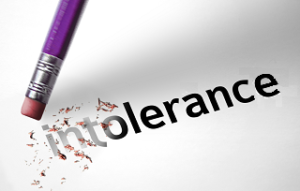
Dialogue in intolerance´s times
There is no discussion of proposals and projects, but one tries to silence the voice by disagreeing with the dramatic appeal to particular facts or situations, and is easy to find precisely because of the anger that has taken over the whole society, but without a calm and reasonable conversation on central themes : education, health and safety, among many undeliverable.
the dramatic appeal to particular facts or situations, and is easy to find precisely because of the anger that has taken over the whole society, but without a calm and reasonable conversation on central themes : education, health and safety, among many undeliverable.
Voltaire and Locke’s Treatises on Tolerance can greatly help, even though they themselves had their own intolerances, the book Cândido de Voltaire, for example, is an irony to the thought of Christian Wolff (1679-1754) a disciple of Leibniz and a reader of Kant.
Voltaire who saw religious fundamentalism take people, groups and even countries to radicalism, proclaimed that it was necessary to “reduce the number of maniacs,” according to Voltaire (2015, p.4) and one way to overcome it was “to subdue this disease from the spirit to the regime of reason, which slowly, but infallibly enlightens men. This reason is gentle, humane, inspires indulgence, smothers discord, strengthens virtue, makes obedience to laws even more pleasing than strength is capable “(ibid.).
His cynicism, Peter Sloterdijk does not directly address it, but refers to all of his time rationalism in “Critique of Cynic Reason”, he said that Voltaire states about the Egyptians that “always turbulent, seditious and cowardly, people who had lynched a Roman for having killed a cat, despicable people under any circumstances, regardless of what the admirers of the pyramids call it “(Voltaire, 2015, 59).
Voltaire shows no trace of generosity, of magnanimity, of beneficence “(Voltaire, 2015, 73); in English Letters or Philosophical Letters, a dehumanized and stereotyped vision of blacks predominates that would be worthy of a racist process today.
Tolerance, which does not signify agreement, is based on the idea that human relations between peoples of different cultures, political and religious conceptions can coexist in such a way that relations between individuals and communities are respectful of the values of the Other. Therefore an ethics of otherness combined with an ontological and anthropological view that we are complex beings and that the relationship with others and with cultures must and can have differences must be based on the idea of diversity rather than uniformity.
What we think about tolerance in the past must be expanded and enriched by diversity.
VOLTAIRE. Treaty on tolerance. Brazilian edition. São Paulo, Folha de São Paulo, 2015.









